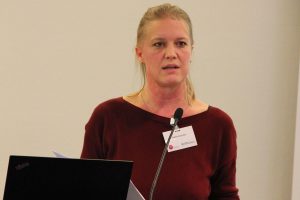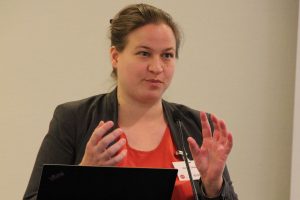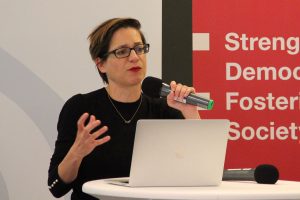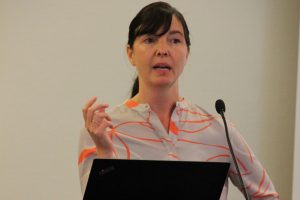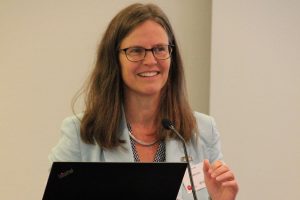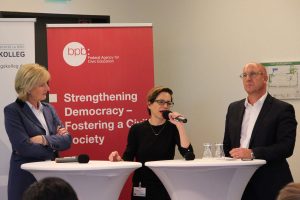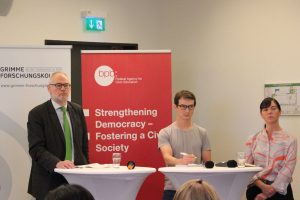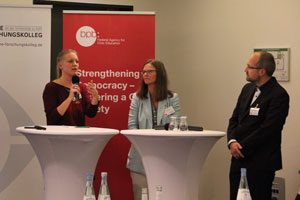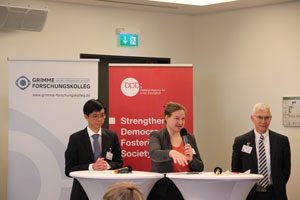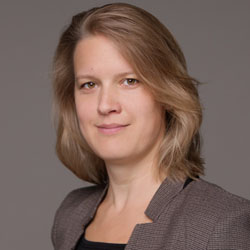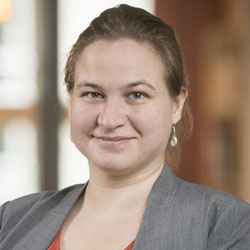About
The term “Super-Scoring” refers to practices that assess individuals and influence collective behavior on the basis of digitally recorded and algorithmically evaluated data. These practices bring together scoring systems and scales from different areas of life, such as economic credit, health behavior, or academic achievements, and could evolve into a new and overarching principle of governance in digital societies. A particularly prominent example is the Social Credit System in China. Platform-based scoring practices and digital sociometrics are also gaining importance in Western societies.
- What is the current state of some of the practices being developed in China and Western societies?
- How may we assess individual and societal consequences?
- How is our image of humanity changing, and how should political and general education react to these digital transformations?
The interdisciplinary symposium “Super-Scoring? Data-driven societal technologies in China and Western-style democracies as a new challenge for education” will take place at Cologne, Germany, on October 11, 2019. At the conference, we will present current concepts and concrete implementations of data-driven social governance processes that implement digital and surveillance technologies; will discuss their normative foundations and socio-political impacts; and will particularly strive to identify consequences for educational policy and best recommendations for action. We will focus on the individual as observed through digital technologies, as their characteristics and behaviors are mapped in numerical values – point systems, scores and, in particular, super-scores – which are then further processed, evaluated, and economized in societal processes of control. The conference and the portal superscoring.de are intended to promote scientific and public discourse on the social-physical and digital-technological control of societal processes.
The complete documentation in the form of videos and texts are now here available.
„Auf jeden Fall wird dieses Modell auch westliche Gesellschaftsideen beeinflussen.“
"The Advisory Council for Consumer Affairs
recommends that developments in China and in other countries which are experimenting with 'super scoring' are closely followed and analysed. In particular, public debate is required on the change in social values and structures that such systems entail."
"In fact many of the key
components of social credit, from blacklists to widespread
surveillance and use of credit scores far beyond borrowing
money, already exist in democracies like the United States."
"China’s Datasphere is expected to grow 30% on average over the next 7 years and will be the largest Datasphere of all regions by 2025 ... as its connected population grows and its video surveillance infrastructure proliferates."
"The social credit system should thus be a wake-up call. The world should acknowledge that data-processing technologies are political devices."
„In Europa und speziell in Deutschland ist ein derartiges staatliches System wohl schon aufgrund der politischen Kultur utopisch. Ein privates Social-Credit-System ist hinsichtlich natürlicher Personen nur bei einer entsprechenden Kooperationsbereitschaft der Personen realisierbar.“
Programme
9:30
Opening and welcome –
Frauke Gerlach (Grimme-Institute)
9:45 – 11:15
Social Credit System in China (case study)
- Evolution of the Social Credit System: A Public Law Perspective –
Yongxi Chen (Hong Kong University) - Beyond “Digital Big Brother”: Five things to understand about China´s Social Scoring System –
Mareike Ohlberg (Mercator Institute for China Studies, MERICS, Berlin) - Blacklists and Social Credit Regimes in China
Larry Catá Backer (Pennsylvania State University)
11:15 – 11:30
Coffee break
11:30 – 13:00
Scoring-Practices in Western-style democracies (case studies)
- Scoring is not a new phenomena: we can learn from experience how to deal with scoring –
Gert G. Wagner (Max Planck Institute for Human Development, MPIB, Berlin) - Personal Scoring in the EU: Not quite Black Mirror yet, at least if you‘re rich –
Nicolas Kayser-Bril (AlgorithmWatch, Berlin) - Data Scores as Governance: Mapping and Analysing Changing Practices in the UK –
Joanna Redden (Cardiff University)
13:00
Lunch break
14:00 – 15:30
Interdisciplinary discussion and evaluation of individual and social consequences
- Shared responsibilities? The future of scoring in the context of shifting baselines and public science –
Stefan Selke (Furtwangen University) - On the function and legitimation of scoring –
Lorena Jaume-Palasí (The Ethical Tech Society) - Identity and Integrity: The Ethical Relevance of Super-Scores –
Christiane Woopen (CERES; University of Cologne)
15:30
Coffee break
16:00 – 17:30
Educational conclusions and recommendations for action
- Ethical Aspects of Algorithms and Scoring in Pedagogical and Social Work Contexts –
Nadia Kutscher (University of Cologne) - Being scored but informed – how to boost people´s risk literacy for public discourse –
Felix G. Rebitschek (Harding Center for Risk Literacy) - Scoring practices – consequences for education in democratic societies –
Isabel Zorn (TH Köln – University of Applied Sciences)
17:30
Closing Remarks –
Arne Busse (Federal Agency for Civic Education)
17:35 – 18:00
Snacks and Networking
Structure of the Conference
The symposium consists of four thematic blocks, each based around three impulses from interdisciplinary perspectives. Each impulse will be accompanied by a written comment in the run-up to the event.
(first case study): What is the state of development? What observations can be made so far? What are public reactions in China?
(further case studies): How do these systems work and what effects can be observed?
What interplay of political, economic, technological, and other discourses promotes the acceptance and development of these scoring systems? Which scenarios are already emerging? What consequences do these quantifying social technologies imply for our image of humanity and society?
Which (political) dimensions for processes of education will gain importance in the future? How can they help us to understand and evaluate our lives in such socio-technologically controlled environments, and to weigh these innovations against other social concepts and values, such as self-determination and freedom?
General Information
The conference language was English. Participation in the conference was by registration; it is free of charge. The online registration is closed, thank you for your participation. The conference was open for scholars and scientists from relevant disciplines, decision-makers in politics and education, and specialist and science journalists.
The conference takes place in Cologne, Germany: Früh am Dom, Früh Lounge, entrance: via Eden Hotel, Sporergasse 1, 50667 Köln (near the Cathedral). If you arrive by car, you will find a map with parking garages here.

